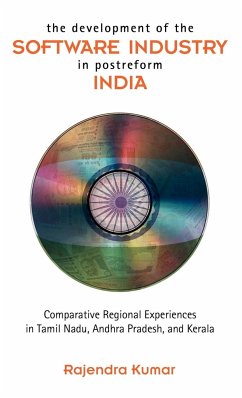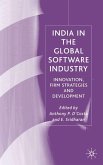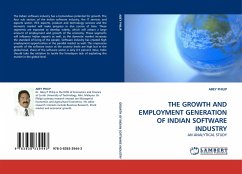Among the success stories of economic development through hi-tech industries, the emergence of India as a major center in the world for software production and exports stands out. This is a fascinating story of economic development in a poor and technologically underdeveloped economy that surged to prominence within a relatively short period of less than two decades. The industry has sustained annual growth rates in excess of 35% for over 15 years since the early 1990s, when the country embarked upon an ambitious economic reforms program. However, within the country, the growth of this industry has been highly uneven, with the southern and the western regions leading the rest of the country. This trend has drawn attention to the role of regional policies in the development of this industry. Investigating these issues in depth will help us understand how the state can play a role in propelling an economy forward. The book also compares the different ways in which three states in southern India have established their software industries, illuminating the multiple pathways that are available to developing regions for industrial development, as well as how they affect the type and structure of the industry that evolve. In this first comprehensive study of the role of regional policies in the development of software industry in India, Rajendra Kumar explains the success of these states in terms of four critical factors: availability of adequate skilled labor and specialized infrastructure, pro-employer labor and policy reforms, ethnic linkages of immigrant professionals abroad who returned to establish firms in their native states, and their existing technological capabilities at the beginning of reforms. Contrary to common explanations in the literature, the state did not play a significant role in providing specialized R&D or finance to the industry. He also presents a new "Competitive Flexibility" model and shows that increasing globalization presents tremendous opportunities for developing regions to become globally competitive in a hi-tech field. This is an important book for all scholars and policy makers interested in economic development through high-technology-based industries.
Hinweis: Dieser Artikel kann nur an eine deutsche Lieferadresse ausgeliefert werden.
Hinweis: Dieser Artikel kann nur an eine deutsche Lieferadresse ausgeliefert werden.








